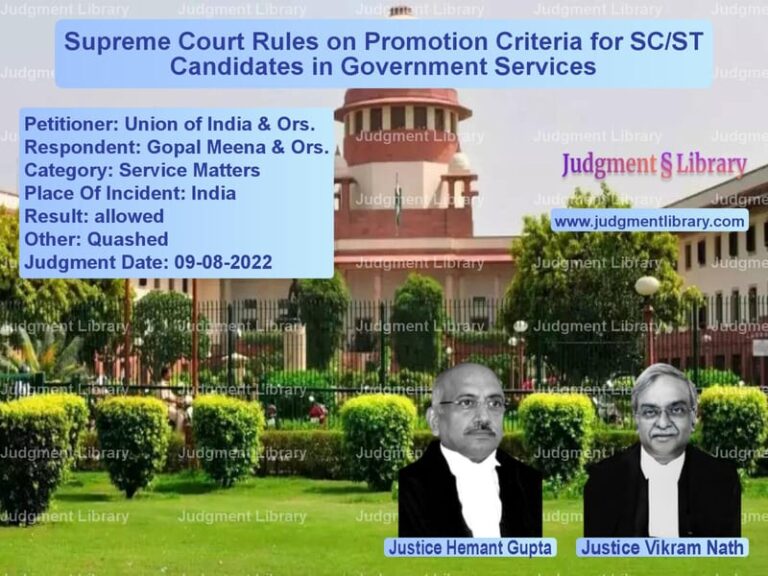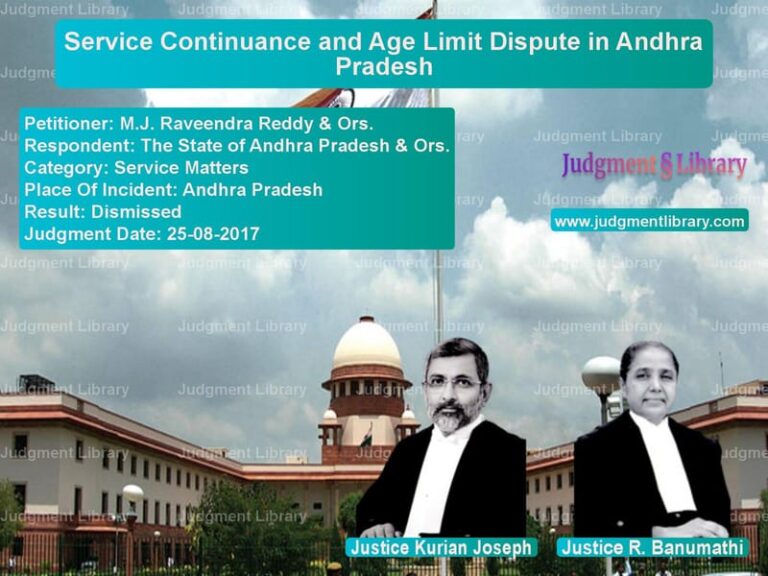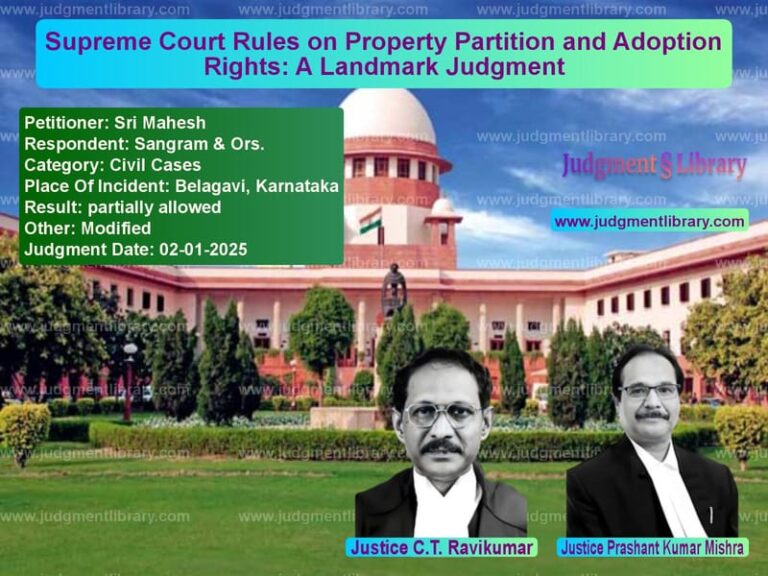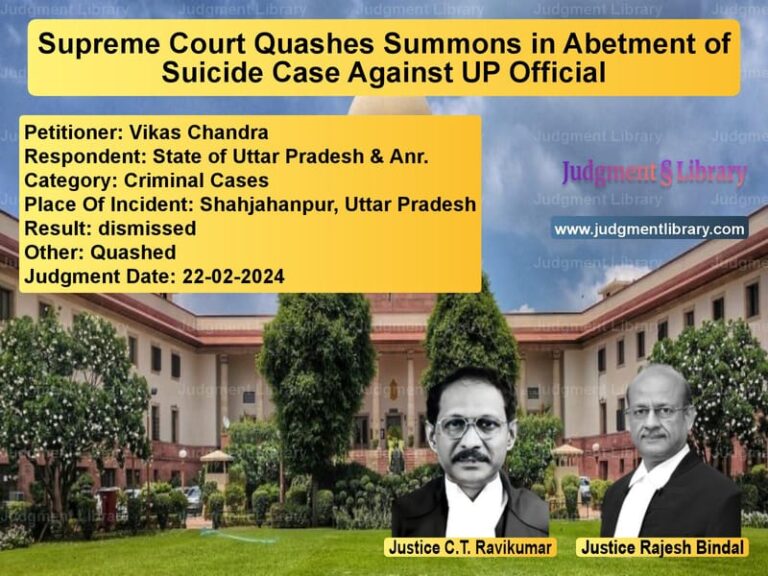Time-Barred Debt Cannot Be Revived Under Insolvency and Bankruptcy Code: Supreme Court Ruling
The case of Gaurav Hargovindbhai Dave v. Asset Reconstruction Company (India) Ltd. & Anr. addresses the crucial question of whether a time-barred debt can be revived under the Insolvency and Bankruptcy Code, 2016 (IBC). The Supreme Court ruled that the limitation period for initiating insolvency proceedings cannot be extended merely because the IBC came into force later.
Background of the Case
The case revolves around a loan default by the borrower, Respondent No. 2, who was declared a Non-Performing Asset (NPA) on July 21, 2011. The State Bank of India (SBI), the original lender, attempted to recover the loan by filing cases before the Debt Recovery Tribunal (DRT) in 2012. However, SBI later assigned the debt to the Asset Reconstruction Company (India) Ltd. (Respondent No. 1) through an assignment agreement dated March 28, 2014.
After a series of legal battles, Asset Reconstruction Company filed an application under Section 7 of the IBC on October 3, 2017, to initiate corporate insolvency resolution proceedings against the borrower. The key question was whether the claim was within the limitation period.
Arguments of the Parties
Petitioner’s Arguments
- The limitation period for initiating proceedings under Section 7 of the IBC should be governed by Article 137 of the Limitation Act, 1963, which provides a three-year period.
- Since the default occurred on July 21, 2011, the three-year limitation period ended in July 2014. Therefore, the application filed in 2017 was time-barred.
- The NCLT and NCLAT erred in applying Article 62 of the Limitation Act, which allows a 12-year period for enforcing money secured by a mortgage.
Respondents’ Arguments
- The IBC is a commercial law, and its provisions should be interpreted in a way that promotes its objectives.
- The limitation period should be considered from December 1, 2016, when the IBC was enacted, allowing creditors to revive their claims.
- Article 62, which provides a 12-year limitation for enforcing money secured by a mortgage, should be applicable.
Supreme Court’s Observations
The Supreme Court categorically rejected the respondents’ argument and held that the limitation period is governed by Article 137 of the Limitation Act, which provides a three-year period. The Court stated:
“The intent of the Code could not have been to give a new lease of life to debts which are already time-barred.”
The Court further clarified that Article 62 applies only to suits, whereas an application under Section 7 of the IBC is not a suit but an application and thus falls under the residuary category of Article 137.
Key Takeaways from the Judgment
- A debt that is already time-barred under the Limitation Act cannot be revived under the IBC.
- For applications under Section 7 of the IBC, the limitation period is three years from the date of default.
- The NCLT and NCLAT erred in applying Article 62, which only applies to suits.
Final Verdict
The Supreme Court allowed the appeal, setting aside the judgments of the NCLT and NCLAT. The Court ruled that the insolvency proceedings initiated in 2017 were time-barred, reinforcing the principle that limitation laws cannot be bypassed under the IBC.
This landmark ruling has significant implications for financial institutions and asset reconstruction companies, ensuring that the IBC is not misused to revive stale claims.
Petitioner Name: Gaurav Hargovindbhai Dave.Respondent Name: Asset Reconstruction Company (India) Ltd. & Anr..Judgment By: Justice R.F. Nariman, Justice R. Subhash Reddy, Justice Surya Kant.Place Of Incident: India.Judgment Date: 18-09-2019.
Don’t miss out on the full details! Download the complete judgment in PDF format below and gain valuable insights instantly!
Download Judgment: Gaurav Hargovindbhai vs Asset Reconstruction Supreme Court of India Judgment Dated 18-09-2019.pdf
Direct Downlaod Judgment: Direct downlaod this Judgment
See all petitions in Bankruptcy and Insolvency
See all petitions in Corporate Compliance
See all petitions in Judgment by Rohinton Fali Nariman
See all petitions in Judgment by R. Subhash Reddy
See all petitions in Judgment by Surya Kant
See all petitions in allowed
See all petitions in Quashed
See all petitions in supreme court of India judgments September 2019
See all petitions in 2019 judgments
See all posts in Corporate and Commercial Cases Category
See all allowed petitions in Corporate and Commercial Cases Category
See all Dismissed petitions in Corporate and Commercial Cases Category
See all partially allowed petitions in Corporate and Commercial Cases Category







